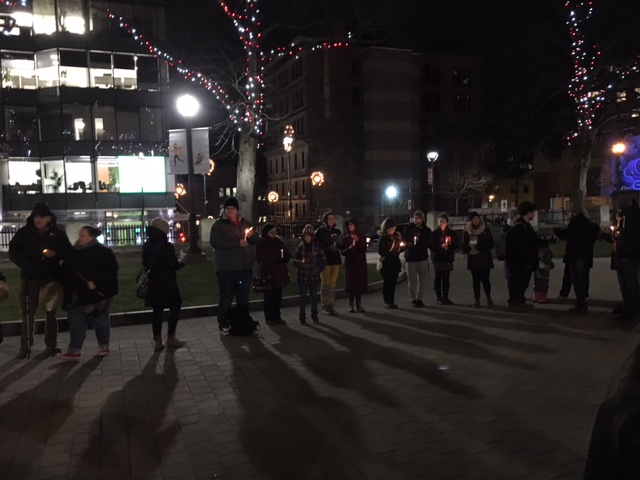A young Inuk woman suffering from acute liver failure is being assessed at an organ transplant centre in Toronto after her family from Labrador launched a campaign to overturn earlier refusals to put her on a transplant waiting list.

According to friends and family, doctors had told Delilah Saunders she was not eligible to go on a waiting list in Ontario because the advocate for Indigenous rights had not abstained from alcohol for a minimum of six months.
However, her younger brother said Friday she was transferred from The Ottawa Hospital late Thursday to the University Health Network, where she is undergoing tests at the transplant clinic.
READ MORE: Inuk advocate for women rejected for liver transplant due to alcoholism: friends
Garrett Saunders said his sister’s condition seems to be improving, and he said doctors told him they are assessing whether her liver is showing signs of recovery.
“Basically … they are going to do a couple of tests to see where she’s at and see how necessary it would be for a liver transplant and see if she’s eligible,” said the 22-year-old younger brother, who was with her at the hospital.
Garrett Saunders said doctors have told him “the liver is not significantly better, but it’s seeing improvement.”

Get weekly health news
The 26-year-old women was admitted to The Ottawa Hospital on Saturday, and friends and family members have said during the early days of her treatment they were told she didn’t meet criteria for the transplant program as she hadn’t remained sober for the previous six months.

Transplant physicians have said the six-month abstinence policy is widely applied in Canada and abroad, in part because there is research showing that some alcoholics resume drinking after a transplant, leading to liver failure or damage.
Dr. Atul Humar, director of transplantation at the University Health Network, has said that up to 30 per cent of those on the waiting list for a liver typically die while waiting for a donor.
He said an acute shortage of organs is one of the reasons that doctors need to determine if a patient can stop drinking before they enter the waiting list.
“There’s a huge shortage of livers here and across the country,” he said.
READ: MMIWG inquiry starts in Membertou, N.S. with families of Loretta Saunders and Tanya Brooks
The doctor has also said that livers are resilient organs, and if a patient can abstain from alcohol, the organ may recover to the point where a transplant isn’t necessary.
He said he was speaking in general, and was not referring specifically to the Saunders case.
Garrett said if the transplant remains necessary, the abstinence policies shouldn’t exclude his sister from the list.
The sibling said his sister has made concerted efforts to stop drinking, and had been sober four months before a relapse that occurred after she delivered difficult testimony before the National Inquiry into Missing and Murdered Indigenous Women and Girls.
“She was on a waiting list to be accepted into another treatment program to deal with all the stuff she was going through and as a result of sitting on that list for so long, she had nobody to turn to and it all spiralled out of control for her,” he said.
“It feels incredibly wrong. … It feels criminal.”
Amnesty International issued a statement supporting Delilah’s Saunders’ inclusion on the waiting list, and praised her for her work advocating for the human rights of Innu and other Indigenous women.
Saunders began advocating for the rights and missing and murdered indigenous women following the murder of her sister Loretta in 2014 in Halifax.







Comments